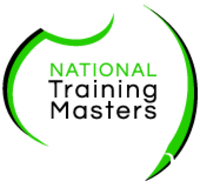
This role has a high level of AI exposure. While some human skills are required, many tasks could be automated or replaced by new technology.
Explore all careersField Assistants aid conservation professionals in various outdoor fieldwork tasks, including data collection and maintenance of access trails.
Get qualified to work as a Field Assistant with a course recognised across Australia. Speak to a training provider to learn more.













Salaries for Field Assistants start at $60,000 per annum and increase as you obtain university qualifications and experience in the field.
 Courses.com.au Team
Courses.com.au Team
There are no clear employment figures for Field Assistants working in Australia right now. They are employed by government agencies such as local government Councils and National Parks and Wildlife, as well as academic institutions and conservation non-profits.
 Courses.com.au Team
Courses.com.au Team
You can get started as a Field Assistant with a VET qualification from the Conservation and Land Management Training Package such as the Certificate IV in Pest Management or Diploma of Conservation and Ecosystem Management. Many Field Assistants begin their careers by joining local environmental groups and completing volunteer assignments. If you are seeking a role with plenty of room for career advancement, you should definitely consider a Bachelor of Environmental Science, Bachelor of Biodiversity and Conservation, or the Bachelor of Science (Ecology and Conservation Biology).
Source: Australian Government Labour Market Insights 2023
 Courses.com.au Team
Courses.com.au Team
Browse occupations related to Field Assistant



If you’re looking to kickstart your career as a field assistant, Dubbo offers a range of accessible training options. With Field Assistant courses in Dubbo, you can acquire the foundational skills needed for a successful career in environmental and wildlife management. Among the popular beginner courses available, you’ll find the Certificate III in Wildlife and Exhibited Animal Care and the Certificate III in Conservation and Ecosystem Management. These courses are tailored for individuals with no prior experience, providing a solid grounding in vital field assistant skills.
For those who prefer hands-on learning, the Certificate II in Sampling and Measurement and the Certificate II in ESI - Asset Inspection and Testing further enhance practical skillsets. Other relevant beginner course options include the Certificate II in Aquaculture and Survey Pests. These courses are not just educational; they also pave the way for exciting job prospects in the vibrant Dubbo region.
For those looking to advance their qualifications, the Diploma of Conservation and Ecosystem Management targets individuals with prior experience, helping learners broaden their expertise and career opportunities within the field. Training providers such as the Taronga Training Institute are committed to delivering quality education and support to learners in Dubbo, ensuring you receive the training necessary to excel in this essential role.
Lastly, exploring the interconnected fields of Environment and Sustainability and Environmental Management will provide a comprehensive understanding of ecological responsibilities. These studies complement the Field Assistant courses in Dubbo, offering deeper insights into the vital work of field assistants. Whether you're just starting out or looking to advance, Dubbo’s training offerings have something for everyone in the field of environmental care and management.